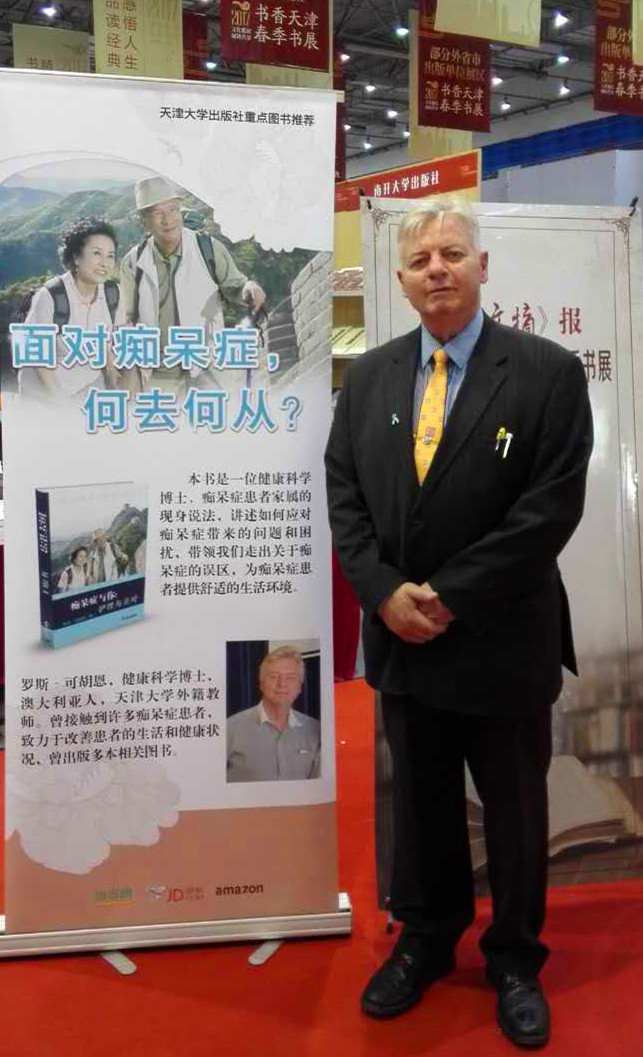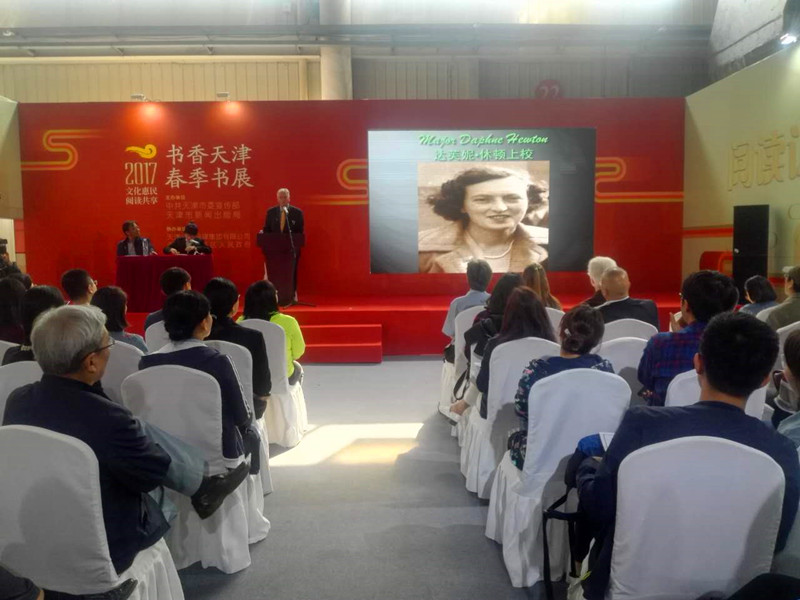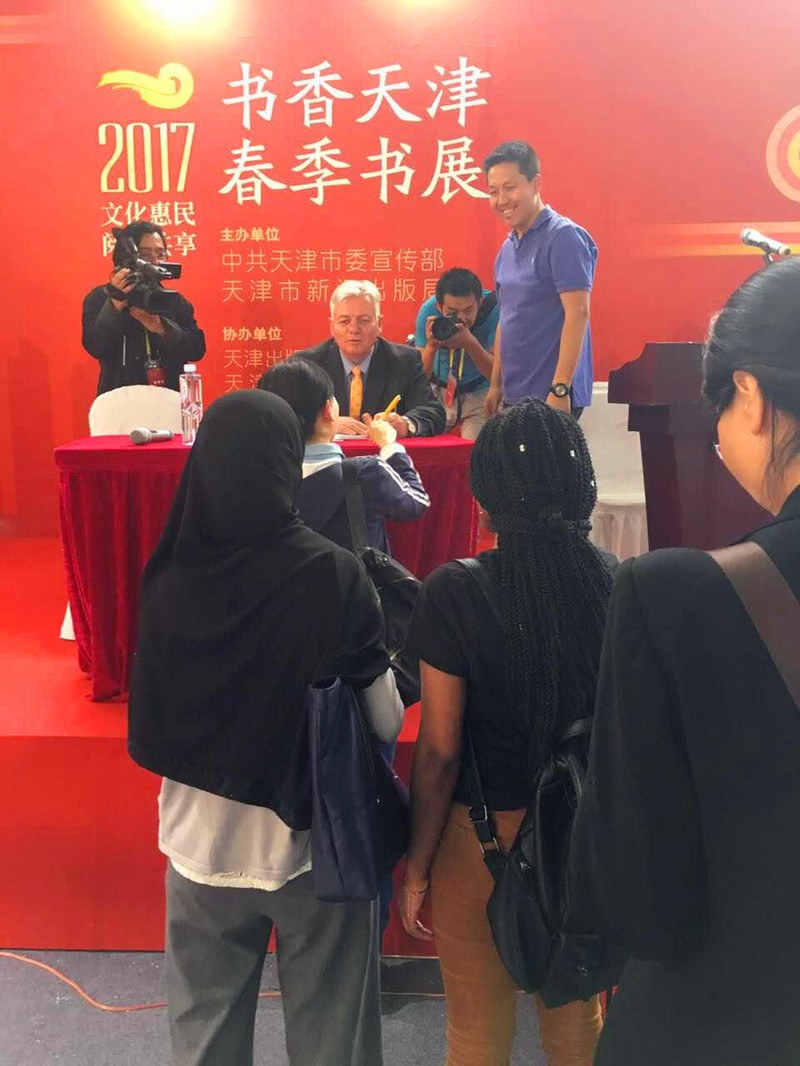TJU Foreign Expert Shares Insights on Dementia in His New Book



TJU Press announced the launching of a new book titled "Dementia and You: Care and Management" at the Tianjin Book Fair held at the Tianjin International Exhibition Centre on Saturday April 22. The book was authored by a Foreign Expert teacher at TJU, Dr Ross Colquhoun and translated into Chinese by TJU students and faculty. The English book was originally published as "Dementia and You: Care, Protection and Reducing Risk". Over the past 3 years Dr Colquhoun has researched and rewritten the book for a Chinese readership.
Director of TJU Press Yao Weidong said: "This book is of great significance for the Chinese community and I hope it is read by as many people as possible. I also hope that the Chinese policy-makers take note of the care and management strategies it outlines. The book is timely as China has a rapidly aging population causing various social and economic issues for the care and management of this problem for both the family and the state. This book addresses many of those issues".
Dr Colquhoun, in his presentation at the launch of the book said: "China is experiencing dramatic changes in the physical and social environment brought about by economic development and social policies. Urbanization, industrialization, an increasingly mobile population, the one-child policy and most recently, globalization, are causing changes in family structures and the intergenerational support of the elderly. A World Bank report noted that informal support systems are breaking down in China".
He pointed out that caregiver issues are of major concern in China as dementia brings with it dependency and impaired functioning. As a result people and the government are concerned about the provision of care for the growing number and proportion of aged people. The challenge for public policy is to assess the viability of family support systems and to devise programs that will be supportive or complementary.
The book aims to overview the need for people, families and the nation to prepare for the rising incidence of dementia. Dementia will soon be the major cause of disability and death, outstripping cancer, heart disease and stroke; imposing a massive burden on families, health systems and economies worldwide. However, like many other chronic diseases, new evidence indicates that it is preventable. The scientific opinion now leans toward the idea that the cause of all dementias is related to cardio-vascular disease causing decreased blood flow and circulation of nutrients and oxygen to the brain. When this system fails brain cells are damaged and die and disease processes are not able to be defended against.
China also has a strong tradition of exercise for health and preventive medicine and what has become evident is that the choices people make are very important in the prevention of dementia: the latest research indicates that smoking, social isolation, not enough exercise and a poor diet can all increase the chances of getting dementia. It seems that the Chinese can do a lot to minimise the risk. Pollution, changes in diets and high rates of alcohol and nicotine use are obvious targets.
The book also aims to explain what to expect and what can be done at the level of the family. Early diagnosis provides many benefits: symptoms, like memory loss may not be dementia but maybe normal or treatable; interventions can delay onset or slow progress and new medications are just around the corner; early diagnosis protects people's rights and allows them a say in their care before it is too late. The book also discusses prevention. We know that the risk of dementia is associated with lifestyle choices. In China, there is a strong tradition of care for the elderly by the family. However, with changing demographics and attitudes of young people toward the elders China will have to develop new ways to deal with the rising problem. The book is also about policy responses to an aging population and the rising incidence of dementia in China. It looks at models of care in Australia and Japan as well as new ideas that may be applicable to China and the need to respond as outlined in the 2013 amendments to the law relating to the Care of the Elderly.
Many elderly people do not have family support and new solutions will need to be found. In the future this will only become more concerning. The need for trained carers, medical facilities and infrastructure will cause severe pressure. Prevention and in-home care are key strategies on the way forward.

